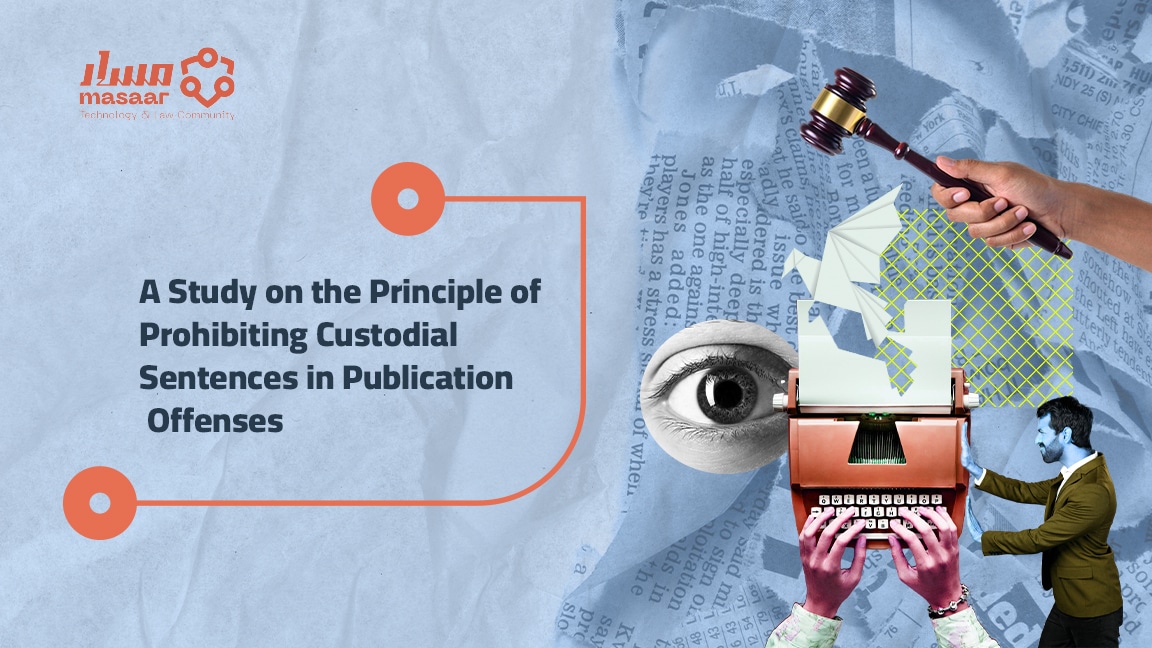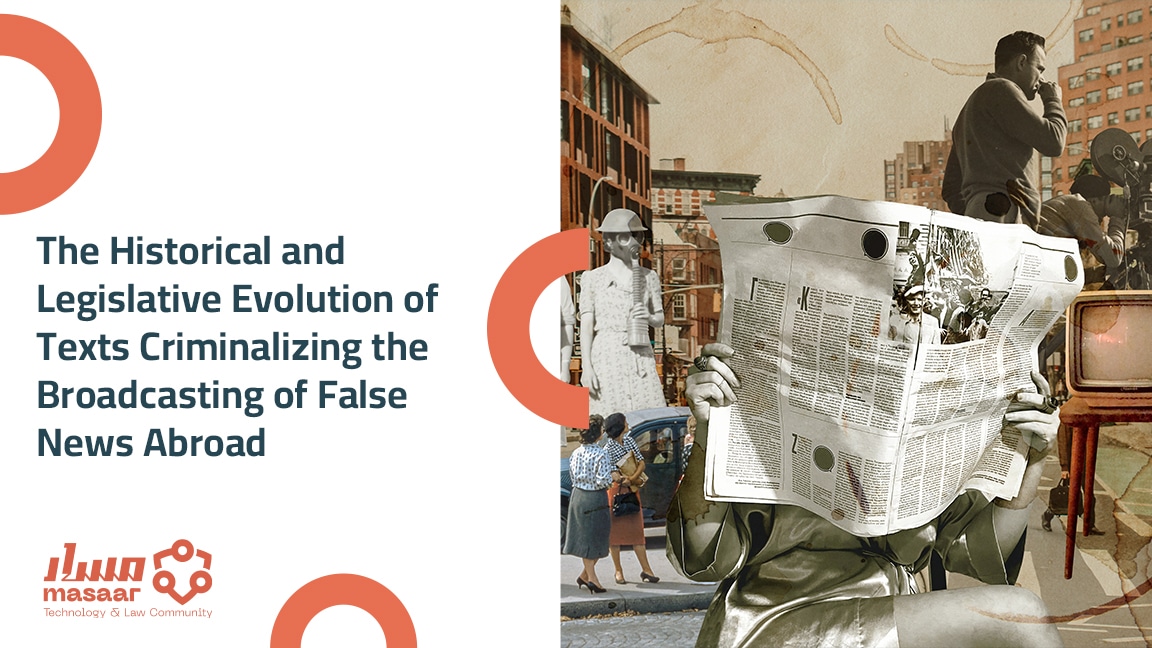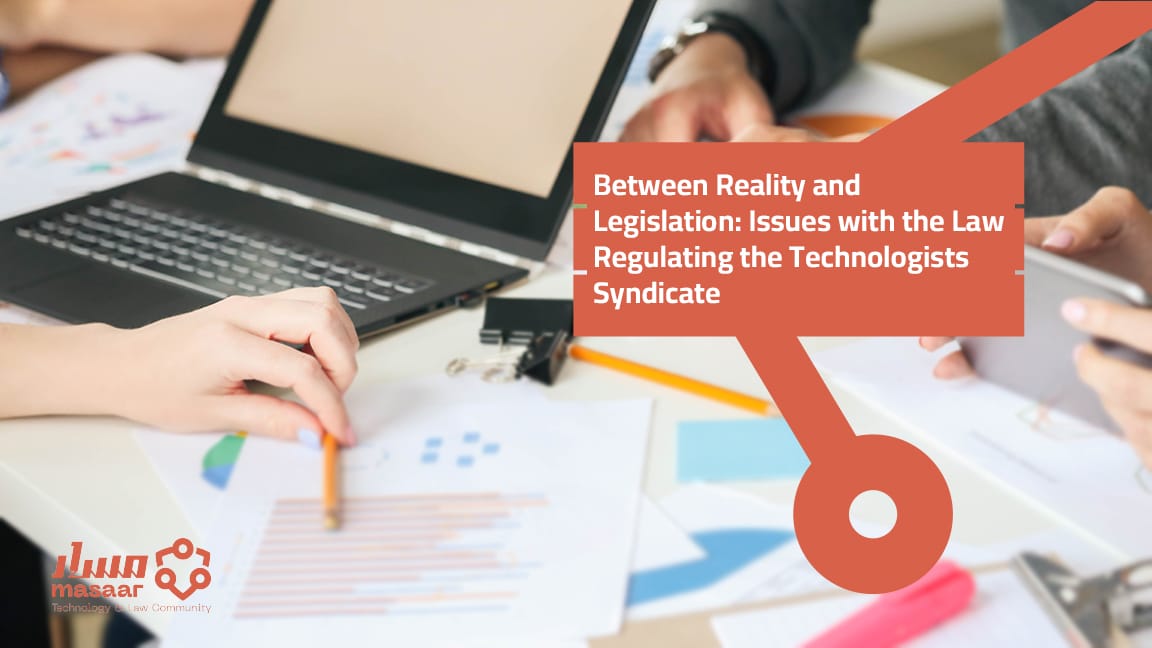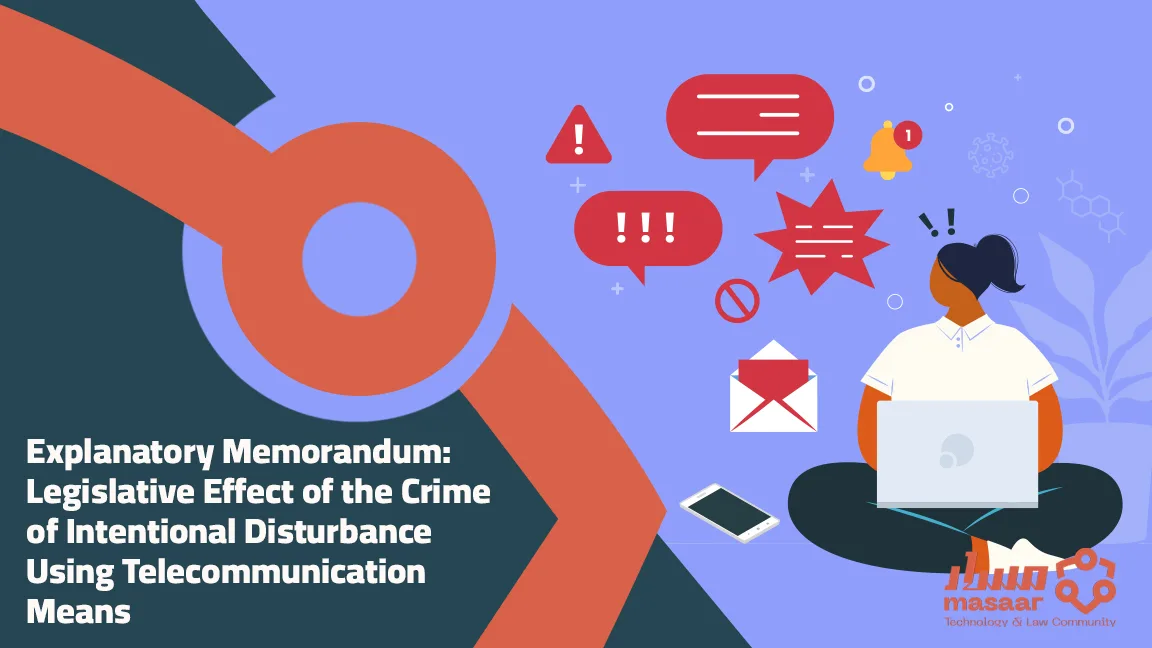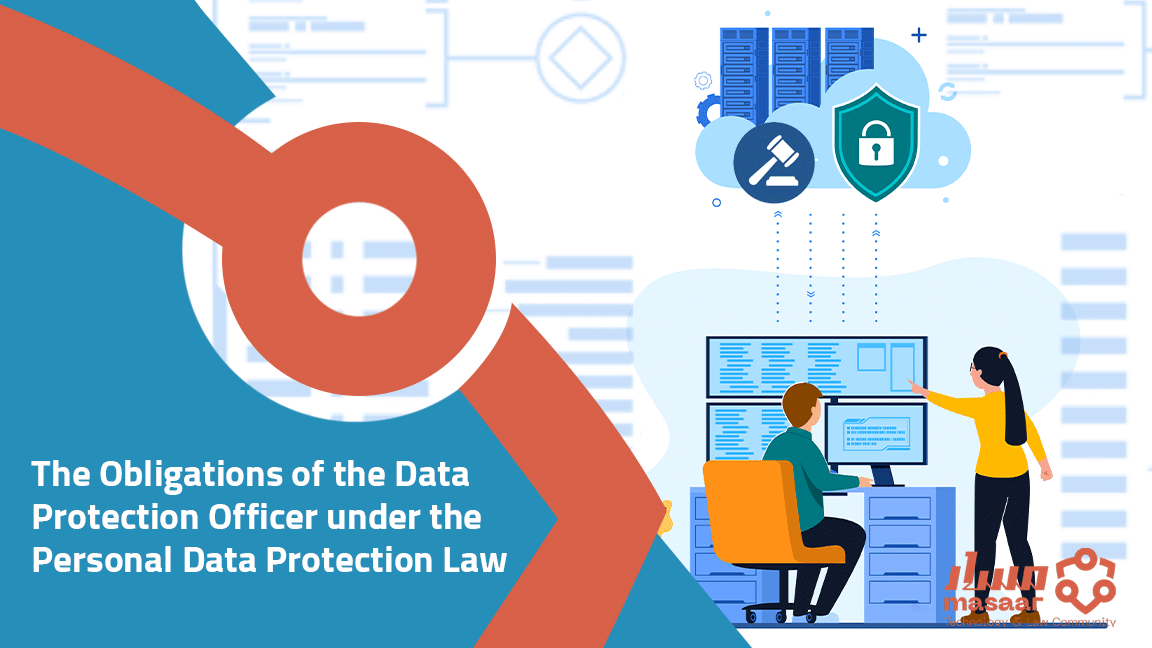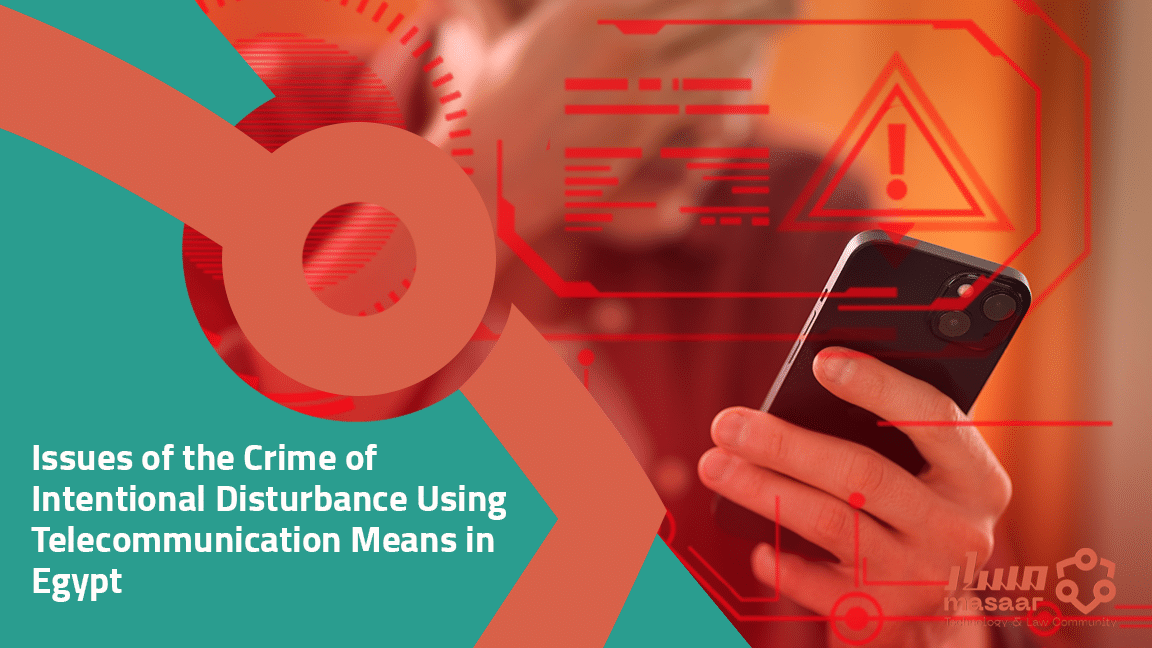Tech and Law
A Study on the Principle of Prohibiting Custodial Sentences in Publication Offenses
This paper examines the Egyptian criminal courts’ disregard for the constitutional principle prohibiting custodial sentences for publication offenses. It analyzes three court rulings where custodial sentences were imposed despite this principle.
The Historical and Legislative Evolution of Texts Criminalizing the Broadcasting of False News Abroad
This paper monitors the historical development of the crime of ‘broadcasting false news abroad’ in an attempt to understand its unnecessary broad interpretation and lack of a precise definition.
Between Reality and Legislation: Issues with the Law Regulating the Technologists Syndicate
This paper seeks to provide a critical reading of the law establishing a professional syndicate for technologists. The paper also reviews the structure and philosophy of the law, along with some of its most important provisions, and offers a critique of the law by highlighting the main problematic issues within its articles.
Explanatory Memorandum: Absence of Insurance Coverage for Platform Economy Workers
This explanatory memorandum addresses the legal issue of the absence of insurance coverage for platform economy workers in light of the new Social Insurance and Pensions Law. It provides an overview of the general legal context and analyzes the reasons why many freelancers are not subject to the law’s provisions, with a focus on workers in digital service platforms.
Data Protection Center: Masaar’s Proposal on the Executive Regulations for the Data Protection Law
This paper seeks to present a practical proposal for the formation of the Personal Data Protection Center, which would be the responsible body for implementing the Personal Data Protection Law. The paper proposes standard frameworks for the rules that should be followed. It also points out the concerns that should be considered to ensure proper implementation of the law.
Social Media Influencers: Exceptional Responsibilities and Absence of Guarantees under the Media Regulation Law
This paper aims to identify the risks posed directly by the Press and Media Regulation Law on influencers. The paper also discusses the impacts related to the policies and regulations produced by the Supreme Council for Media Regulation (SCMR) on the work of influencers’ pages. Finally, the paper addresses the absence of any guarantees for influencers in the face of the multiple responsibilities imposed by the laws and regulations of the Press and Media Regulation Law.
Explanatory Memorandum: Legislative Effect of the Crime of Intentional Disturbance Using Telecommunication Means
Masaar, through this explanatory memorandum, seeks to point out the issues related to the text and application of Article 76 of the Telecommunications Law and provides potential legislative alternatives for avoiding them. The memorandum starts with an explanation of the intentional disturbance crime in Egyptian laws, before moving to the aspects of Article 76 suspected unconstitutionality, and it ends with recommendations for amending that article.
The Obligations of the Data Protection Officer under the Personal Data Protection Law
This paper deals with the definition of the position of the Data Protection Officer and the obligations imposed on them by the Personal Data Protection Law. The paper also presents the conditions for appointing a Data Protection Officer and the impact of lack of commitment to these conditions, in addition to the impact of the Data Protection Officer breaching their legal obligations.
Issues of the Crime of Intentional Disturbance Using Telecommunication Means in Egypt
This paper aims to provide an explanation of the offense of “intentional disturbance and harassing through misusing telecommunication devices” by highlighting the legislative evolution of the concept of disturbance, starting from the Egyptian Penal Code and extending to the Cybercrime Law.

